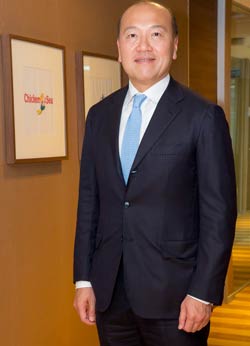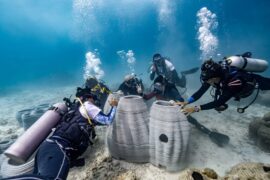Thai Union, a major supplier of frozen and canned shrimp and fish products to global markets, announced on September 30 that it is introducing a more stringent business ethics and labor code of conduct with higher levels of accountability and transparency throughout its supply chain. It will apply to all units, replacing the 2013 code of conduct concerning labor practices.
The Bangkok-headquartered company’s code of conduct is built on 12 fundamental principles designed to reinforce a culture of integrity, and is aligned with the United Nations global compact principles of basic responsibilities to people and upholding their basic rights. The revised code focuses on the recruitment and treatment of workers stipulating protocols on employee welfare, benefits, wages, age, the right to freedom of association, the right to collective bargaining, and non-negotiable frameworks for health and safety. Like its 2013 predecessor, the new code has a zero tolerance policy for human rights violations in the supply chain.
 “We relentlessly work against corruption in all forms, promote good governance and increased transparency,” says Thiraphong Chansiri, president and ceo of Thai Union.“This new code further defines the expectations of our suppliers and showcases our commitment to earn the trust of customers, consumers and the world by operating with integrity and high ethical standards. We relentlessly work against corruption in all forms, promote good governance and increased transparency,” said Thiraphong Chansiri, Thai Union’s president and chief executive officer.
“We relentlessly work against corruption in all forms, promote good governance and increased transparency,” says Thiraphong Chansiri, president and ceo of Thai Union.“This new code further defines the expectations of our suppliers and showcases our commitment to earn the trust of customers, consumers and the world by operating with integrity and high ethical standards. We relentlessly work against corruption in all forms, promote good governance and increased transparency,” said Thiraphong Chansiri, Thai Union’s president and chief executive officer.
He continued: “In recent years, we’ve seen too many instances of human trafficking and labor abuses coming from many parts of the world – it’s unacceptable. We hope others will join us to demand an end to labor abuses.”
Chansiri said the new code is just one of numerous efforts being employed to ensure a supply chain free of human rights violations. For example:
- Thai Union is a member of the Shrimp Sustainable Supply Chain Task Force, an international industry alliance including leading retailers, manufacturers, government agencies and NGOs with the goal of ensuring that Thailand’s supply chain is free from forced labor through accountability, verification and transparency.
- The company has internally audited 100% of its Thai shrimp feed supply chain to an internationally accepted best practice standard developed by the task force. UL, an independent auditor, will audit 50% of its Thai shrimp feed supply chain by 2015. By 2016, 100% of Thai Union’s Thai shrimp feed supply chain will be audited by UL, providing independent third party verification of compliance to internally accepted best practice standards.
- Thai Union will internally audit 100% of its Thailand-sourced sardines, mackerel and seabream by the end of 2015. Once the internal audits are completed, suppliers will begin undergoing third-party audits.
- A formal training program will begin for Thai fishing boats and brokers for Thai raw seafood materials.
- The company is working in collaboration with local NGOs on training programs for Thai Union’s foreign workers to ensure they know and understand their rights under Thai law.
The business ethics and labor code of conduct applies to all majority-owned companies within the Thai Union group, and will be rolled out with implementation and auditing plans. In addition, by the end of 2015, employees at every Thai Union manufacturing site in Thailand will be trained on compliance with the new code.





